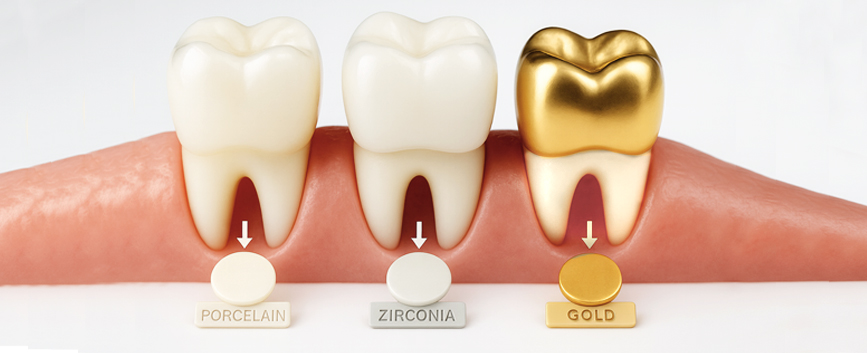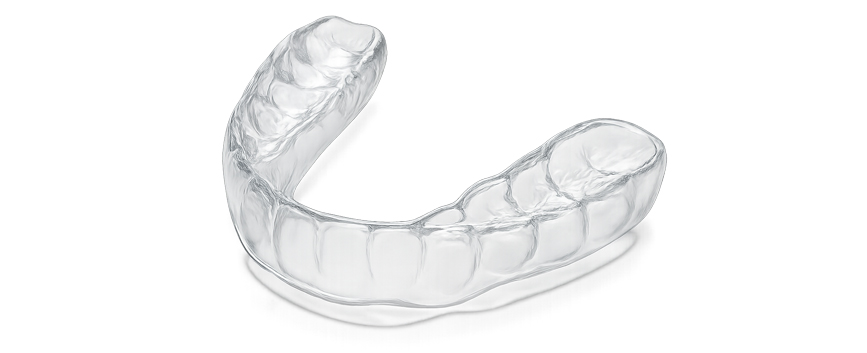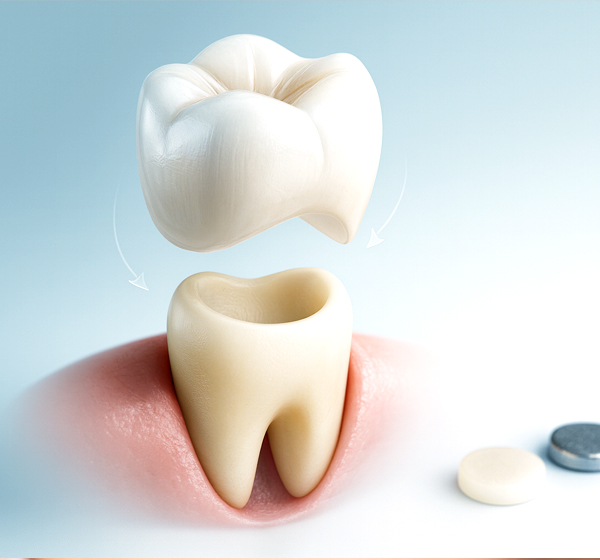Dental Crowns Ilford – Types, Cost & How Long They Last
A dental crown is a second chance for a tired tooth. If you have a large old filling, a crack that catches when you chew, or a tooth that has had a root canal, a crown can restore strength and make your smile feel like you again. At Longwood House Dental Care in Ilford, we keep explanations simple; you always know what’s happening and why.
The cost of a dental crown can vary depending on several factors, such as the type of crown, the location of the tooth, the clinic, and the materials used.
Contents
- What is a dental crown?
- Do I really need one?
- Types of crowns, how they look and feel, and typical costs
- What affects dental crown cost
- How a crown is fitted; comfort & sensitivity
- How long do dental crowns last?
- Eating, drinking, and everyday care
- Whitening and colour matching
- When a crown needs replacing
- Conclusion
- FAQs
What Is a Dental Crown?
Picture a made-to-measure cap that slips over your tooth, restoring shape, strength, and a natural look. The crown covers the part you see above the gum; it protects what is left of the tooth and helps the bite feel smooth again.
We use materials such as porcelain, ceramic, zirconia, and metal alloys; your dentist will help you choose what suits your bite, your smile line, and your budget.
Do I really need one?
Not every wobbly tooth needs a crown. Sometimes, a careful onlay or composite bonding is enough. We usually recommend a crown when:
- A filling would be too large to last; the remaining walls could crack.
- A tooth is weakened after a root canal and needs a protective cover.
- There is a fracture line, and you feel a sharp edge or ache when chewing.
- You want to improve shape and colour where simpler options won’t hold.
Our promise is straightforward; we only suggest a crown if it genuinely gives you better strength and predictability than a filling could.
Types of crowns, how they look and feel, and typical costs in Ilford

1. Porcelain / Ceramic Crowns
Porcelain behaves like enamel in the way it reflects light; in photos and in person, it blends beautifully. We often choose it for front teeth and visible premolars, then fine-tune the shade so it sits quietly in your smile.
Good for: visible teeth, a seamless smile line.
What patients notice: a natural look; smooth surfaces that are easy to clean.
Things to consider: for very heavy bite forces, especially on back molars, we may choose a tougher alternative or add a nightguard if you clench.
Typical range: £550–£1000.
2. Zirconia Crowns
Zirconia is the sturdy one; it stands up to chewing on molars yet still looks clean and natural, especially when layered with ceramics. If you grind or clench, this material often gives you confidence and longevity.
Good for: molars and premolars; durability without a metal look.
What patients notice: strong, solid feel; still looks like a tooth rather than “metal”.
Things to consider: lab work can be more involved; sometimes we need a touch more space for the best fit and finish.
Typical range: £650–£1200.
3. Metal crowns
precious or non-precious alloys, including gold
Metal is the quiet workhorse; exceptionally durable and kind to opposing teeth. Because it is so strong, we can often preserve a little more natural tooth when preparing. We keep metal to the back where appearance matters less.
Good for: maximum longevity under heavy chewing.
What patients notice: comfort and reliability; very long service life.
Things to consider: you will see metal if it is on a visible tooth; we usually reserve it for molars.
Typical ranges:
– Non-precious/precious alloy: £450–£700
– Gold crowns (depends on gold content/market): £750–£1,200+
Prices shown are indicative and reflect typical costs in Ilford practices. For the most accurate, current fees in Lonwood House Dental, please check our Price list & Finance page; we review prices periodically to keep them fair and transparent.
What affects dental crown cost
Material and position play the biggest part; front teeth demand lifelike colour; back teeth take more force and may need stronger options. Some teeth need pre-treatment first; for example, a core build-up or root canal.
Your bite matters, too; if you clench, we often recommend zirconia and a nightguard. Finally, shade goals influence lab time; if you plan teeth whitening, do that first so we can match the new shade.
How a crown is fitted; comfort & sensitivity
Here is what a calm, routine crown journey looks like:
1. Assessment and photos
Your dentist checks the crack lines, the bite, and whether alternatives could work just as well.
2. Tooth preparation
With local anaesthetic, we gently reshape the tooth so the crown can seat precisely. Accuracy here means comfort later.
3. Shade and digital scan
No gloopy impressions; we scan your teeth and choose a shade that matches your smile.
4. A temporary cover
You leave with a neat temporary while the lab crafts your crown.
4. Fit appointment
We try the crown in, check contacts and bite, then bond it permanently once we are both happy.
Most patients feel comfortable during treatment; a little sensitivity afterwards is normal and usually settles within days. We will show you simple ways to keep things calm at home.
How long do dental crowns last?
With daily brushing and interdental cleaning, regular hygiene visits, and a stable bite, crowns typically serve 10–15 years, often longer.
Zirconia and metal tend to excel on molars, where forces are higher; porcelain/ceramic shine where appearance matters most.

Heavy grinding, very acidic diets, or gum issues can shorten that span; a nightguard and tailored hygiene plan help protect your investment.
Eating, drinking, and everyday care
First 24 hours after fitting, go gently; avoid very hard nuts or sticky toffees while the cement reaches full strength. After that, live normally with a few smart habits:
- Brush twice daily with fluoride toothpaste; clean between teeth once a day.
- Do not chew ice; it is a common culprit for chips on any material.
- If you clench in your sleep, wear your nightguard; it protects crowns and natural teeth and often helps your jaw feel more relaxed.
- Keep up with hygienist visits; they are the easiest way to prevent small issues from becoming big ones.
Whitening and colour matching
Teeth whitening lightens natural enamel; it does not change the colour of crowns or fillings. If a brighter smile is on your wish list, whiten first; we will then match your new crown to the fresher shade so everything blends.
When a crown needs replacing
Crowns are long-lasting rather than “forever”. Please get in touch if you notice:
- New pain or sensitivity that does not settle,
- A chip or crack you can feel with your tongue,
- A loose edge or a margin you can catch with floss.
We will examine the tooth underneath, check the bite, and advise on repair or replacement. Most replacements are straightforward; we simply repeat the steps above with today’s materials and a better bite plan if needed.
Conclusion: Is a Dental Crown Worth the Investment?
In conclusion, while dental crown cost can vary depending on the material and procedure, they offer excellent value in terms of durability, functionality, and aesthetics. At Longwood House Dental Care in Ilford, we ensure that you receive the best care at competitive prices. Whether you need a porcelain, zirconia, or metal crown, we’re here to guide you through the process and help restore your smile.
Book a friendly chat about dental crowns; no pressure, just clear choices that fit your tooth, your timeline, and your budget.
Frequently Asked Questions (FAQs)
Will it hurt?
Treatment is carried out gently with a local anaesthetic, so you should feel comfortable. A little sensitivity afterwards is common; it usually settles within a few days, and we will show you how to keep it calm.
Will it look like a real tooth?
Yes, that is the goal. With porcelain or ceramic, we match shade and translucency so it blends with your smile. For back teeth that work harder, zirconia gives extra strength while still looking natural.
How much does a crown cost in Ilford?
Typical ranges: porcelain/ceramic £550–£1000, zirconia £650–£1200, metal £450–£700, gold £750–£1,200+. Prices are indicative of the Ilford area; for current fees in our practice, please see our Prices & Finance page.
How long do crowns last?
Most serve 10–15 years with daily care and regular hygiene visits; grinders often benefit from a nightguard.
Can I eat normally after a crown?
Yes, once numbness wears off, start soft and avoid very hard or sticky foods for the first day. After that, eat normally and keep up with cleaning.
Does insurance cover dental crowns?
Many dental insurance plans cover part of the cost of dental crowns, but it’s best to check with your provider to understand your coverage.
Can a dental crown be replaced?
Yes, if a crown becomes damaged or worn out, it can be replaced with a new one.






